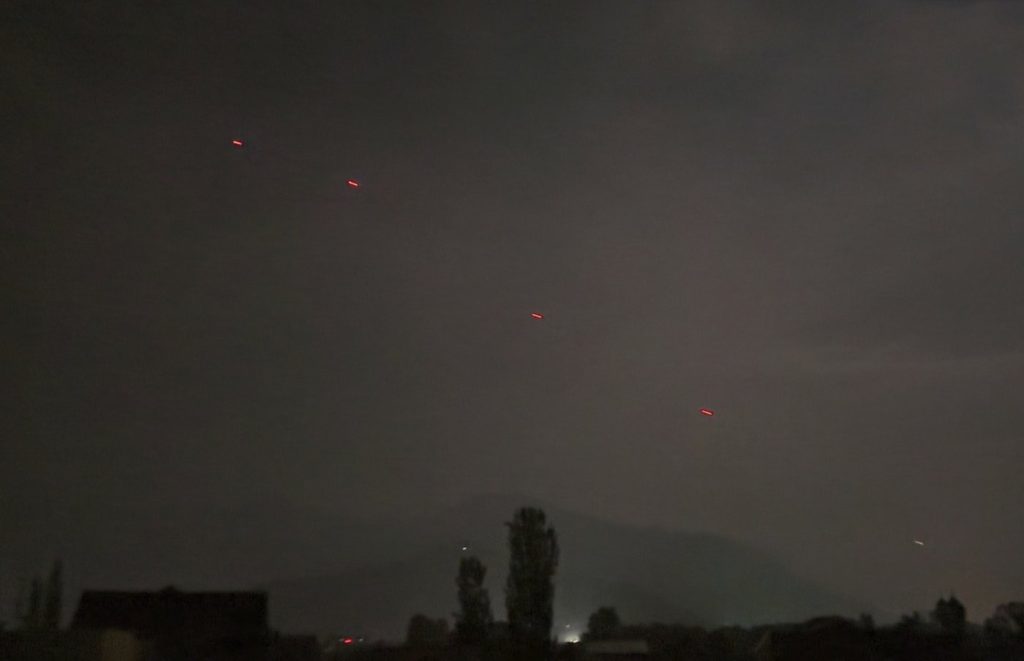ISLAMABAD (AP) - A ceasefire agreement was reached between India and Pakistan on Saturday following U.S.-led negotiations aimed to end the most intense military confrontation between the nuclear-armed rivals in decades. However, just hours after the agreement was announced, both countries accused each other of violating the ceasefire.
The ceasefire was anticipated to quickly halt weeks of escalating clashes, which included missile and drone strikes instigated by a mass shooting of tourists in Indian-controlled Kashmir the previous month. India had blamed Pakistan for the shooting, a claim that Pakistan denied. Explosions were reported in two major cities in Indian-controlled Kashmir shortly after the ceasefire was agreed upon, leading to further tensions.
Indian Foreign Secretary Vikram Misri stated that there were repeated violations of the ceasefire understanding, accusing Pakistan of breaching the agreement. He called on Pakistan to take necessary measures to address these violations and emphasized the importance of handling the situation responsibly.
In contrast, Pakistan's Foreign Ministry asserted that Indian forces were responsible for initiating the ceasefire violations. The ministry reaffirmed Pakistan's commitment to the ceasefire and stated that its forces were managing the situation with restraint. They highlighted the need for effective communication to resolve any issues arising from the implementation of the ceasefire.
The announcement of the truce was first made by U.S. President Donald Trump on his Truth Social platform, congratulating both nations on their decision to cease hostilities and expressing appreciation for their efforts in reaching the agreement.
Pakistani Prime Minister Shehbaz Sharif stated in a speech that his country’s agreement to the ceasefire was made in the interest of regional peace. He expressed hope that lingering issues between India and Pakistan, particularly the long-standing dispute over Kashmir, would be resolved through peaceful dialogue.
Following the ceasefire agreement, residents in Indian-controlled Kashmir reported hearing explosions across Srinagar and Jammu, raising alarm and uncertainty about the ceasefire's effectiveness. Local officials, including Omar Abdullah, the region's leading elected representative, questioned the betrayal of the ceasefire just hours after its announcement, expressing concern over the potential for further loss of life.
Conflict between India and Pakistan has been a recurring issue since both nations gained independence from British India in 1947, with various skirmishes and wars over the decades. The recent hostilities resulted in a series of missile strikes exchanged between both sides on Saturday before the ceasefire was negotiated. India claimed they had targeted Pakistani airbases in response to missile attacks from Pakistan on crucial infrastructure within India.
U.S. Secretary of State Marco Rubio confirmed that senior officials from both countries had engaged in discussions over the previous 48 hours, which included key figures such as Indian Prime Minister Narendra Modi and Pakistan's Chief of Army Staff Asim Munir. They agreed to start talks on a broader set of issues at a neutral location, suggesting a potential path towards de-escalation and eventual cooperation.
While Pakistan initially celebrated its military retaliation, the announcement of the truce shifted the national sentiment towards relief and hope for peace. Citizens expressed their desire for an end to warfare, considering the ceasefire a critical moment for their nation.
Prior to the ceasefire, tensions had heightened dramatically following a shooting at a major tourist site in Indian-controlled Kashmir, which resulted in at least 26 civilian fatalities. The violence had included targeted strikes on health facilities and schools, with a series of missile exchanges further complicating the situation.
The Associated Press was unable to independently verify all actions attributed to either India or Pakistan amid the chaotic environment. Nevertheless, the reports of explosions in Indian-controlled Kashmir after the announcement of the ceasefire drew sharp focus on the fragile nature of the agreement.












